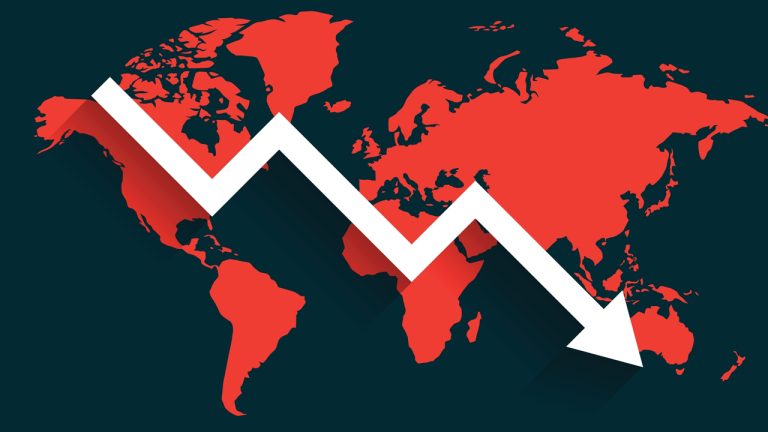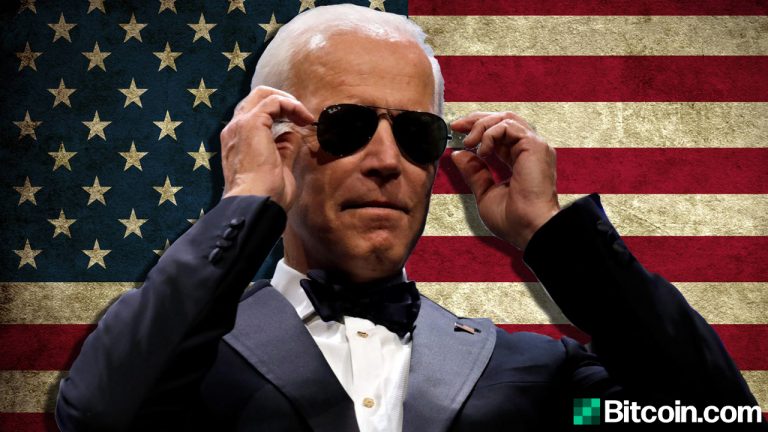 Bitcoin’s rise is enriching early adopters at the expense of society, according to a paper by European Central Bank (ECB) economists. They argued that bitcoin’s speculative growth leads to wealth redistribution, where early investors gain while non-holders and latecomers are left poorer. Economists warn this dynamic could harm societal stability, deepening inequality and threatening democracy […]
Bitcoin’s rise is enriching early adopters at the expense of society, according to a paper by European Central Bank (ECB) economists. They argued that bitcoin’s speculative growth leads to wealth redistribution, where early investors gain while non-holders and latecomers are left poorer. Economists warn this dynamic could harm societal stability, deepening inequality and threatening democracy […]
The Hollywood icon was relentlessly mocked for appearing in the ad in 2021, which was released just before the crypto markets plummeted.
Hollywood star Matt Damon has finally opened up on why he appeared in cryptocurrency exchange Crypto.com’s infamous “Fortune Favors the Brave” advertisement, which was once the subject of relentless mockery.
Speaking to the Associated Press on March 27 at the premiere of his new film, Damon appeared somewhat abashed as he explained his reason for appearing in the ad. He said it was mainly because his clean water initiative, Water.org, was indire financial circumstances, explaining:
”We had a down year in Water.org, and I did that commercial in an attempt to raise money for Water.org.”
Damon founded the clean water project in 2009 alongside engineer and philanthropist Gary White. It aims to increase access to clean water globally by providing small loans that finance the purchase and installation of water taps and toilets.
Damon explained that he had once given his whole salary to Water.org because it was in a dire financial position.
The Hollywood icon continued to say that “Crypto.com heard about that and they gave $1 million dollars to Water.org just on their own,” before adding:
“I definitely have a lot of gratitude to them, and for what they did for our foundation.”
Released in October 2021, the ad starred Damon amid a digital landscape of historic figures such as the Wright brothers and Sir Edmund Hillary. It appeared on billboards and television spots globally.
Related: SEC files lawsuit against Tron’s Justin Sun and celebrities over crypto securities offering
Following a horrendous year for crypto in 2022, the ad received widespread criticism, and Damon has since been the butt of numerous jokes, such as those on the TV show South Park and from late-night hosts such as Stephen Colbert.
Web3 Gamer: Shrapnel wows at GDC, Undead Blocks hot take, Second Trip
 On Jan. 10, 2023, the World Bank published its Global Economic Prospects report, stating that the outlook for the global economy and future economic conditions is bleak. According to the report, 2023 growth forecasts have been cut across the board, with the global economy projected to grow by 1.7% in 2023 and 2.7% in 2024. […]
On Jan. 10, 2023, the World Bank published its Global Economic Prospects report, stating that the outlook for the global economy and future economic conditions is bleak. According to the report, 2023 growth forecasts have been cut across the board, with the global economy projected to grow by 1.7% in 2023 and 2.7% in 2024. […]
NFT Steez chats with Celo ecosystem lead Mashiat Mutmainnah about the promise of ReFi and its capacity to promote environmental and social good.
On Sept. 30, NFT Steez, a bi-weekly Twitter Spaces hosted by Alyssa Expósito and Ray Salmond, met with Mashiat Mutmainnah to discuss how regenerative finance (ReFi) can provide more accessibility and inclusivity to blockchain technology.
As a "mission-driven movement," Mutmainnah explains that ReFi enables users to redefine their relationship with the current financial system and their relationship with finance and wealth.
Currently, in many countries, millions of people lack basic, equitable access to the financial services that would allow them to meet their daily needs.
What if there were newer models that could sustainably alleviate this? According to Mutmainnah, ReFi can redefine what money means and how it's used.
Mutmainnah emphasized that ReFi brings awareness to how the present financial systems operate in an "extractive" and "exploitative" manner. She also drew a comparison to fast fashion by explaining that what enables a user to purchase a shirt for $5 comes at the expense of a child laborer.
These "extractive" systems are no longer working for people since a core tenet of ReFi is equitable accessibility and distribution.
Mutmainnah explained that often ReFi is seen as synonymous to climate, and while that is a pillar, ReFi has enabled "tangible and accessible use-cases." Users can "plugin" and participate in models and systems that can increase their overall prosperity and that of the ecosystem.
Therefore, ReFi can be considered a way of triangulating elements of sustainability via "stabilizing" the climate and "biodiversity," while also keeping equitable access within global communities. This has the potential to create new financial models and systems that can increase prosperity.
As Mutmainnah puts it:
"ReFi is helping folks change the way they relate to money."
Related: NFT Steez and Lukso co-founder explore the implications of digital self-sovereignty in Web3
When asked whether NFTs could be used for social and public good, Mutmainnah referenced a pilot program that involved a "loyalty NFT rewards program." Akin to Starbucks' latest NFT loyalty program, Mutmainnah explained how a similar scheme could yield positive and sustainable benefits.
For example, imagine purchasing an NFT that can grant the holder one free coffee for 10 days. In these models, NFTs can yield more economically feasible benefits than buying the item while also bringing more awareness to the good or service.
Contrary to the hype and speculation circulating NFTs in 2021, more creators and platforms are expanding and exploring practical use cases from peer-to-peer and peer-to-business initiatives.
However, that does not mean adoption comes with ease. According to Mutmainnah, beyond NFTs, there are many "infrastructure pieces" to explore, including building out more dynamic products that enable this.
Mutmainnah explained that it's a dance of sorts between "making a product frictionless" for seamless adoption and empowering the user to be an "advanced" user that takes full "ownership of their assets."
To hear more from the conversation, tune in and listen to the full episode of NFT Steez and make sure to mark your calendar for the next episode on Oct. 7 at 12 pm EST.
The views and opinions expressed here are solely those of the author and do not necessarily reflect the views of Cointelegraph.com. Every investment and trading move involves risk, you should conduct your own research when making a decision.
 Decentralized networks such as Bitcoin’s don’t know national allegiance, they only know math. And when you’re trying to get your savings out of an ATM, or send a payment to relatives in a war-torn environment, someone else’s politics is the last thing you want standing in the way of you and your loved ones’ well-being […]
Decentralized networks such as Bitcoin’s don’t know national allegiance, they only know math. And when you’re trying to get your savings out of an ATM, or send a payment to relatives in a war-torn environment, someone else’s politics is the last thing you want standing in the way of you and your loved ones’ well-being […] Rumors of a fourth and possible fifth round of direct stimulus checks have become a hot conversation topic this week, as lawmakers are urging the President to act. Over 80 U.S. legislators have sent letters to President Joe Biden and Vice President Kamala Harris asking the administration to push forward direct economic stimulus payments and […]
Rumors of a fourth and possible fifth round of direct stimulus checks have become a hot conversation topic this week, as lawmakers are urging the President to act. Over 80 U.S. legislators have sent letters to President Joe Biden and Vice President Kamala Harris asking the administration to push forward direct economic stimulus payments and […]